The ramifications and reasons for economic strife in Europe
European countries are experiencing a wave of strikes and protests due to high energy prices, an unprecedented rise in living costs compounded by poor pay and working conditions as well as other government policies, for instance in France, an increase in the retirement age.
The economic woes of Europe and its ramifications
Recent months have been marked by a significant upsurge in industrial action in the UK, Germany, France, Spain, Portugal, Italy, just to name a few.
Observers are saying that the widespread strikes are likely to continue. What, in your opinion, is the underlying cause?
It's quite a complex issue, but at the same time, it's also quite simple to understand and analyze.
What we've had in Europe is, since the financial crisis in 2008 - 2009, when in the United Kingdom, and in Europe, austerity measures have been applied in quite a vicious manner, whereby incomes have been reduced quite significantly.
The former economic minister of Greece, Yanis Varoufakis, (commenting on) the sort of current banking crisis that is facing Europe and America, said that it is absolutely impossible to stabilize a banking system, which has been built (&) designed almost to be unstable.
I would go as far as to say that the whole capitalist system is impossible to stabilize, and the system which has been built, designed [engineered] almost, to be unstable. So this is where capitalism has led us, and austerity measures of the last 10 years, both in Europe and UK.
So you see that people's incomes have (been) reduced while the (corporate) profits have increased, because that's what capitalism does; the 1% of the population reap all the benefits, while the 99% do not get any benefit of that profit that is being raked in.
And we've seen, over the last few years during the pandemic how the profits have soared of the large multinational corporations, whilst their employees have been exploited in a most extraordinary manner. You know, companies like Amazon, and Microsoft, and other big operators have seen their profits double and triple on many occasions.
While, like in the United Kingdom, nurses' salaries have actually reduced by 25% the purchasing power of what they were earning 10 or 12 years ago. The junior doctors in the health service have had their pay cut in real terms and across the board, whether it is workers, teachers, regular workers, that's why you've had strikes in London in many, many areas of activity.
Similarly in France, it is the first time that all the unions have come together to oppose this particular increase in Pension [retirement] age.
Germany has seen strikes 9and in) Holland, Italy, Spain, the days that have been lost due to strike have been quite incredible in the last year and it has continued in 2023.
Shabbir Razvi, Economic and Political Analyst
In your opinion, how much is capitalism to blame and how much is the ongoing war between Russia and Ukraine taking a toll on the economy of Europe?
Well, in fact, they're one and the same, the Western incursion into Ukraine by providing weapons to their puppet, President Zelensky, is actually Grand Theft Country, which is a big step up from Grand Theft Auto.
The western regimes have seen the opportunity to advance their attempted takeover of Eurasia, by advancing into the soft underbelly of Russia, in the form of Ukraine. They've been playing around there since 1990 when Ukraine was just entering its period of independence and these are the results, these are the ways in which they operate.
The economic fallout, however, is that they have to take whatever free cash they normally float around in their own economies to pump weapons into their puppet regime in Kyiv. And that shortens the cash supply and it makes it hard for people to survive in the West; the prices go up, the energy supply is constrained, and people have to work longer for less money.
And that's where, the French especially, have seen their government betray them, lie to them, and, steal from them by canceling their pensions, by clawing back their invested Pension Fund monies and forcing them to work on a post retirement basis, because their government is incompetent, and because it's committing war crimes.
John Bosnitch, Journalist, Activist and Political Analyst
Throughout Europe the ruling classes are claiming that they cannot make any concessions to the striking masses, while at the same time they are funding bank bailouts and vast military budgets to fuel the war that NATO is waging against Russia in Ukraine.
How far and for how long do you think this can go on?
Oh, well, we know that President de Gaulle was ousted by street protests in 1968, and I can tell you President Macron is not (even) a slim shadow of President de Gaulle. So President Macron could fall at any moment, it's just a question of whether he can maintain support in his party and support in the National Assembly of France.
And once again, it's all just a question of money, because everybody in this game is corrupt. People are not going into politics anymore because they're idealists, people are going into politics because it's the shortest trajectory to maximum wealth pick-pocketed from the public, and the public in France is one of the most enlightened, and most socially conscious and democratically active, publics in all of Europe.
Where the French go, the Europeans will follow.
John Bosnitch, Journalist, Activist and Political Analyst
Do you agree with that conclusion?
Well, obviously there's immense truth in what our friend from Belgrade is talking about.
The reality is that the benefits of capitalism are rarely equitably distributed and what happens is that wealth tends to accrue for a small percentage of the population, which has been shown in the last two decades is that 1% of the population.
But what happens with capitalism is that it is inherently exploitative, alienated, unstable, unsustainable, and creates massive economic inequality. It commodifies people, people are seen as a commodity, how much they can produce for the organization, and it is anti democratic, and leads to an erosion of human rights and national sovereignty.
Why? It incentivizes imperialist expansion and war. Like our colleague was saying that expansion and war in Ukraine and we've seen what America has done since the Second World War, at least have [sic] fought in 50 different nations, it has 750 bases abroad. Why is that?
You know, the ordinary people in America are suffering, a nation like America, where 50 million people have no healthcare provision, really shows you what capitalism does.
And you can take another example if you like, (The) Philippines, which has been under the control of the Americans for the last 150 years after Spain left. The Philippines hasn't progressed at all, in any shape or form, while other countries in the Far East, (for example) Malaysia, Indonesia are doing lot better.
Anyone who has been following the neoliberal Appleby model or whichever nation has tried that has actually failed immensely.
The purveyors of neoliberal economic model will always argue that it is capitalism which has uplifted the ordinary people from the poverty trap, but the reality is that capitalism applies sanctions on countries whereby a social model is being followed and when they fail, we are told that a socially conscious economic model cannot operate.
But the reality is that (it) happens due to the manner in which capitalism and the neoliberal rulers in London, Paris and Washington, try to destroy nations.
Shabbir Razvi, Economic and Political Analyst
Britain has found itself grappling with the worst cost of living crisis in decades, Inflation is at a 41 year high and food and energy bills have skyrocketed, in the last few months in particular, millions are struggling to cope.
Do you think that British prime minister, Rishi Sunak, has any solutions to these points of contention?
Not at all; he comes from that group in British society that clawed their way up to the top to become one of the shoulder rubbers with the banksters. We're talking about a particular type of capitalism here, which is worse than all of the others combined, and that's called "Bankster Capitalism".
That's the combination of gangsters and bankers, bankster capitalism, and in that sense it's the maximum possible concentration of wealth in the fewest possible hands, which extrapolates all of the evils of capitalism and multiplies them to their maximum possible extent, England and specifically the City of London, the banking heart of the English empire, is one of the main co conspirators here in this crime.
What we're seeing here is a groundswell of human opposition to mechanized theft.
John Bosnitch, Journalist, Activist and Political Analyst
The power of the people with the inherent right to strike is, of course, a cornerstone of democracy and a fundamental right under the European Social Charter, yet, for example, in France and also other parts of Europe, we see that these protesters are met with excessive force by the police.
How do you think that reflects upon the democracy that Europe has been standing up for over the past few decades, lecturing the entire world about what democracy should be?
Well, France, unfortunately, is now led by a man who is nothing more than another poodle, like Tony Blair was in England, working for the Anglo American Empire centered in Washington.
Macron is an American project, he's a marionette leader of France, and better than anybody else the people of France know that.
They elected him because they were the victims of a massive wave of propaganda against the National Front, which was the leading opposition party to Macron.
And now they've got what they voted for, and they're starting to realize what a terrible, terrible, option they took.
John Bosnitch, Journalist, Activist and Political Analyst
Why are protests being met with excessive force? What does this mean? And do you see the will in Europe to solve the economic problems so as to alleviate their economic woes?
The situation in Europe is becoming quite exasperating. All across Europe, because either Europe as being part of NATO has sort of really focused on its military power and has spent money on armaments and so on, while infrastructure is not developed.
Europe is a lot better on healthcare issue compared to USA, but nonetheless the exploitation that is taking place of the working class in the whole of Europe is really quite phenomenal.
And it has really, as I said, earlier, taken speed, it has been more [sic] quicker in pace over the last three years during the pandemic, but the huge sort of corruptive nature of contracts that were given in the United Kingdom, in Germany, in Holland, in France, all to do with sort of pandemic related projects, which was exploited by the friends of the ruling elite.
So, money is siphoned out of the system by the elite and their friends, while they often tell us that there isn't money to be spent on the salaries and wages for people to live a reasonable life. And again, the neoliberal economists have always argued that it becomes the sort of wages inflation spiral.
But the reality is that, over the last 10 years, we've seen that more money has been printed, and, due to that, asset pricing has increased, i.e. the sort of stock market valuations, real estate, all that has increased because there was cheap money available.
But as soon as one talks about paying the nurses, the teachers, the doctors, the railway workers, the people who actually run the nation, there is no money, we are told quite often, but then there are bailouts and all kinds of shenanigans that go on in the financial market, are really awarding (those responsible for the situation) while ordinary people are penalized.
Shabbir Razvi, Economic and Political Analyst
Would you mind briefly concluding our discussion?
Well, look, it's an excellent thing that these demonstrations are being led by the people of France. The French see the system as being a military protection racket in which people are forced to pay for weapons for wars they don't want and actually it's a good time to remember that President de Gaulle came [sic] to Canada when the Quebec separatists in Canada wanted to have more freedom and he called for "Vive le Québec libre" "Le Québec Libre".
Well, what we need to say today is “Long live a Free France”. “Viva La France Libre”, and that's what the people of France are going to achieve.
John Bosnitch, Journalist, Activist and Political Analyst
Magnetic revolution: Iran’s nano-solutions driving cleaner and greener oil industry
Deadly clashes erupt in Syria’s Aleppo as US-backed SDF forces defy HTS rule
FM Araghchi: Iran’s internal affairs solely matter of its people
Iran army chief: Enemy threats will not go unanswered
Iran: Israeli FM’s visit to Somaliland a ‘dangerous precedent’
Rome protests Maduro abduction by US
Leader of Yemen’s separatists flees ahead of talks in Saudi Arabia
Venezuela to deliver 30-50 million barrels of oil to US: Trump



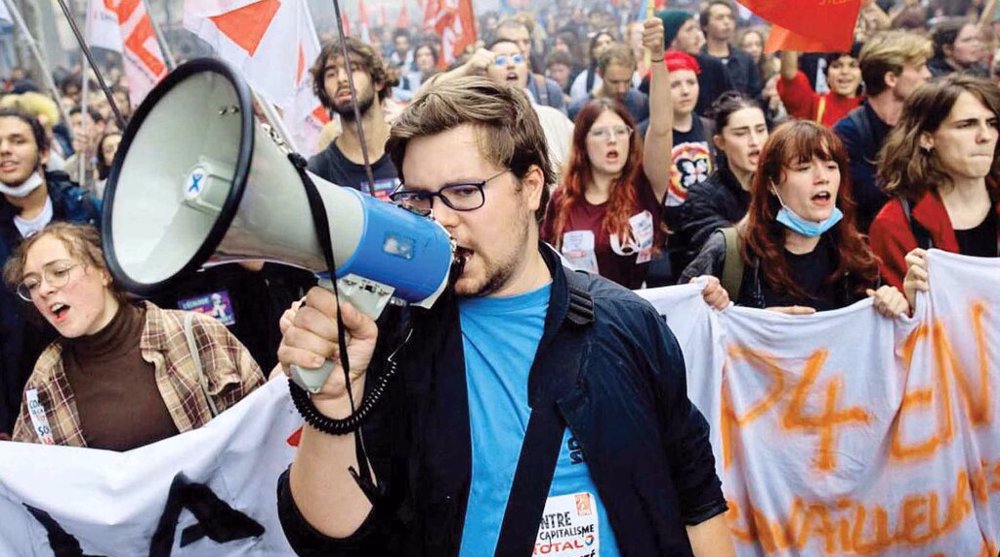
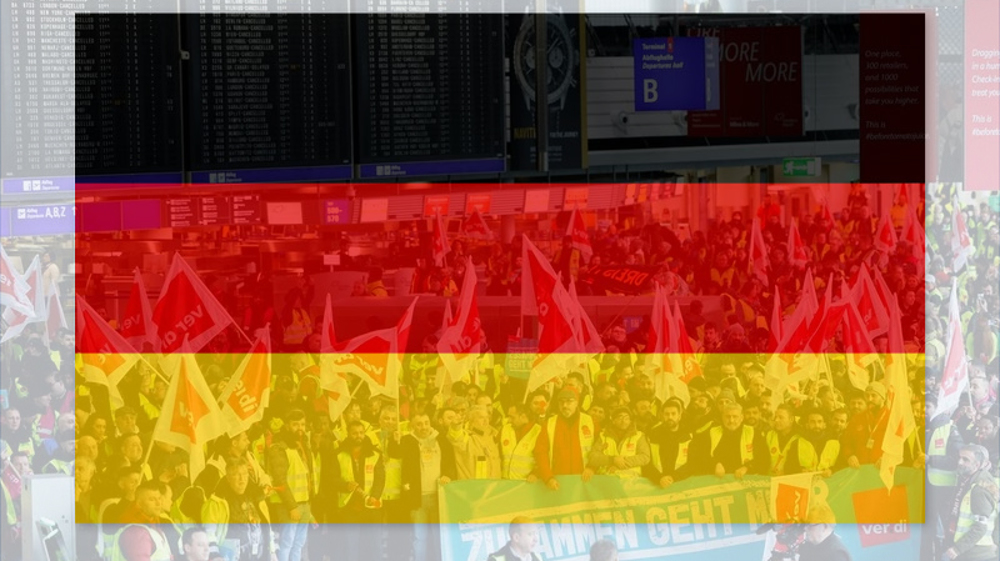
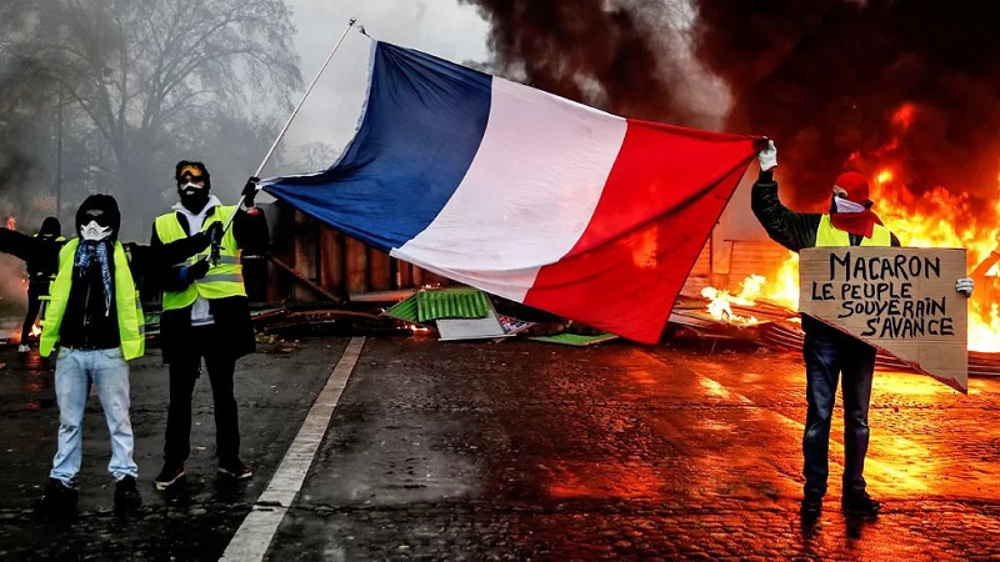
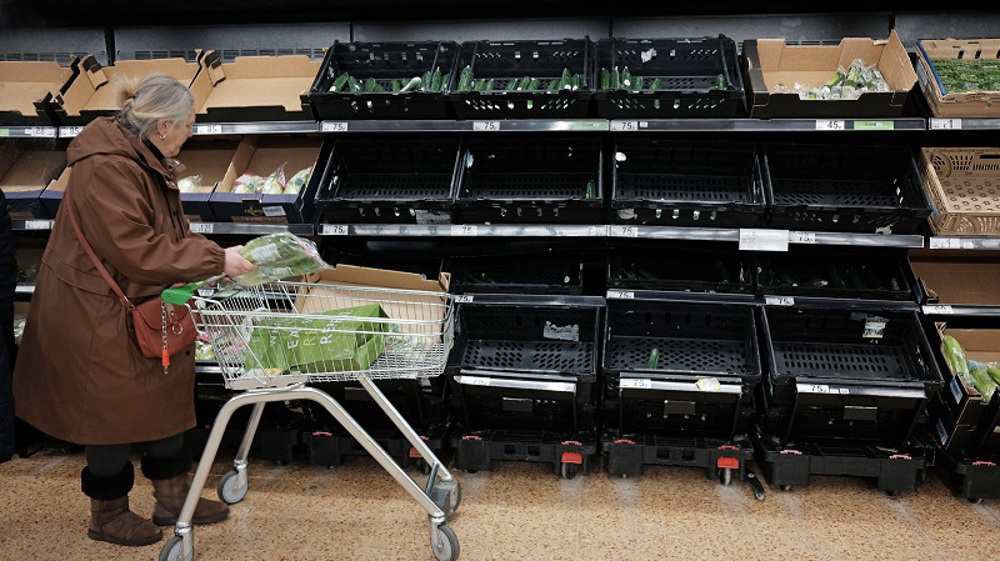
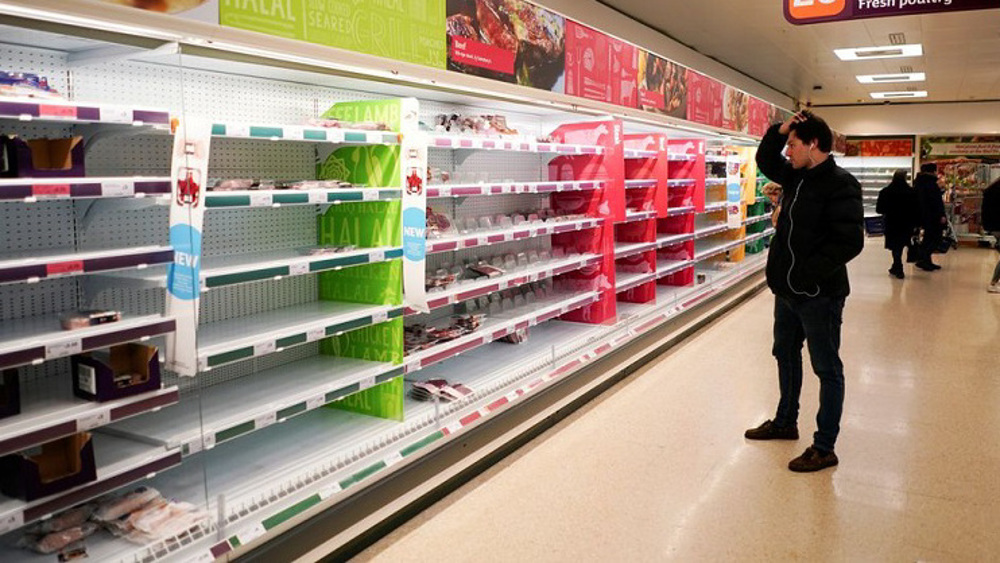
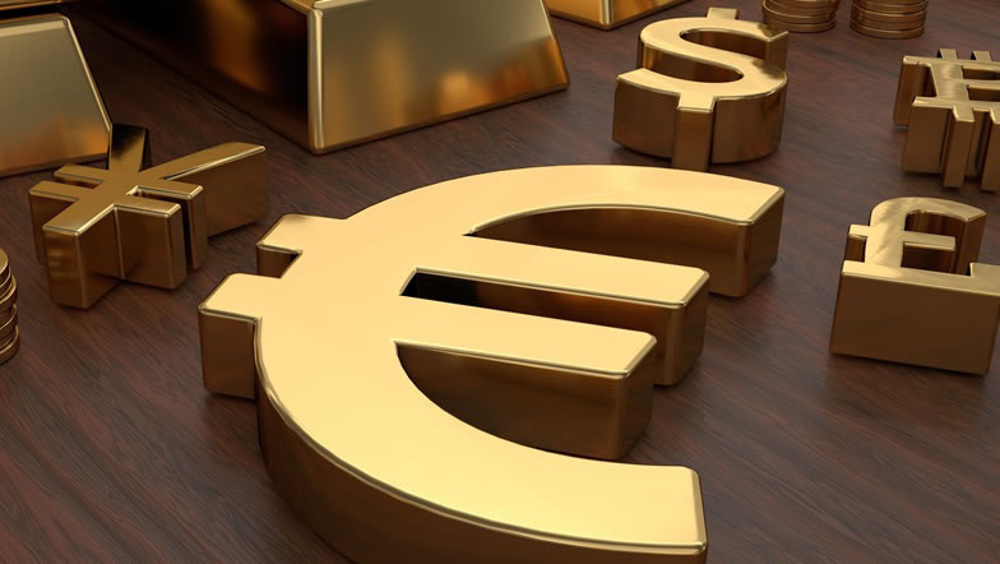
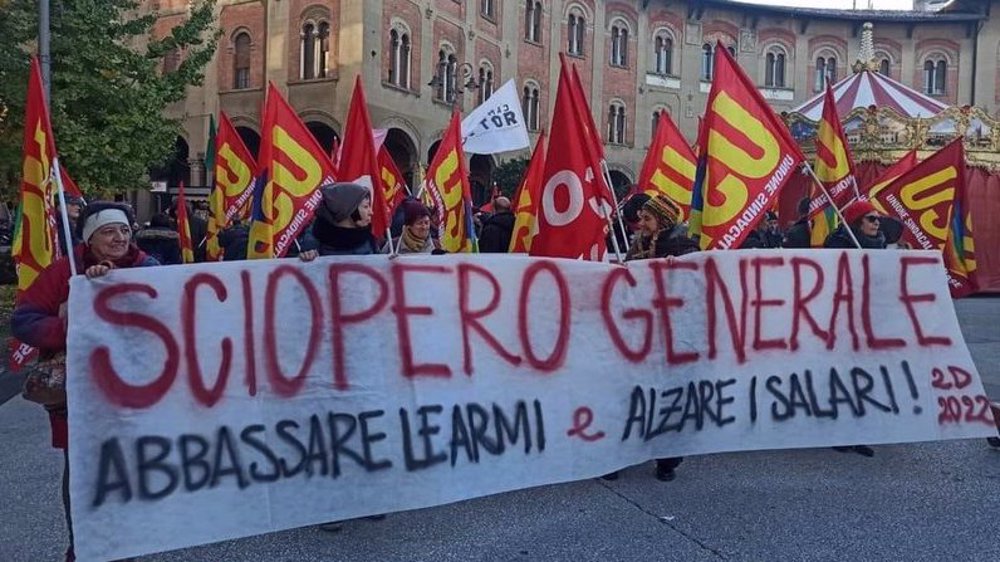
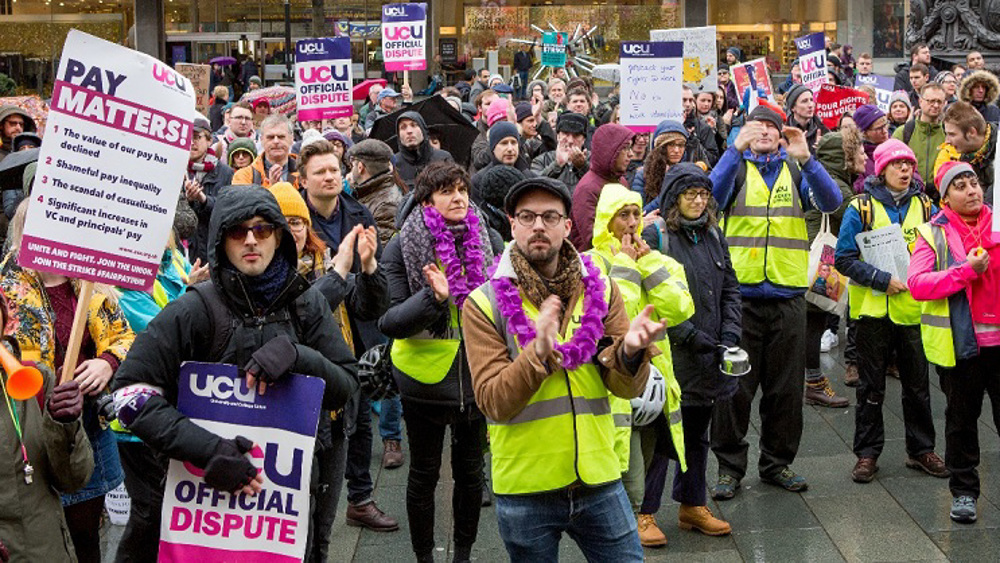
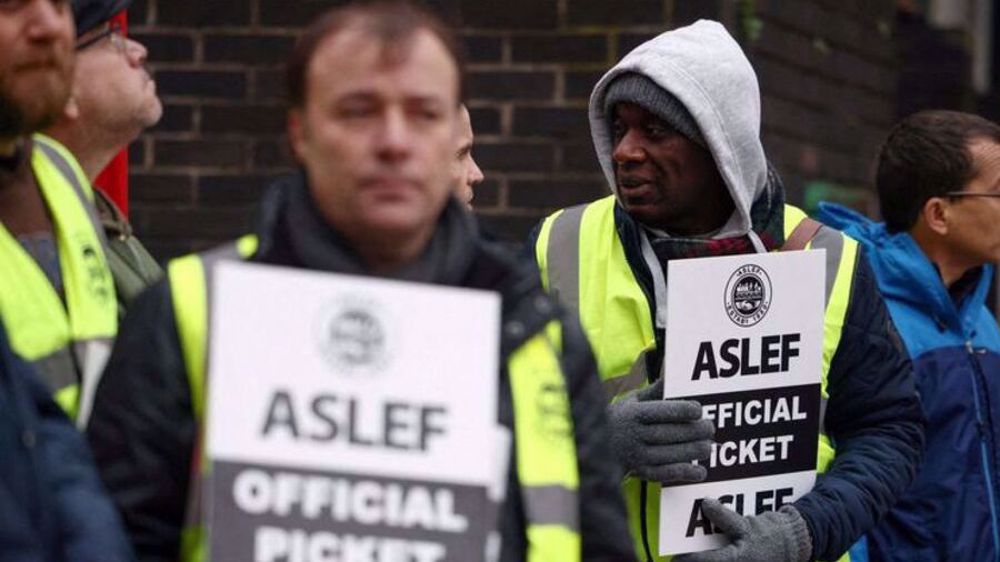
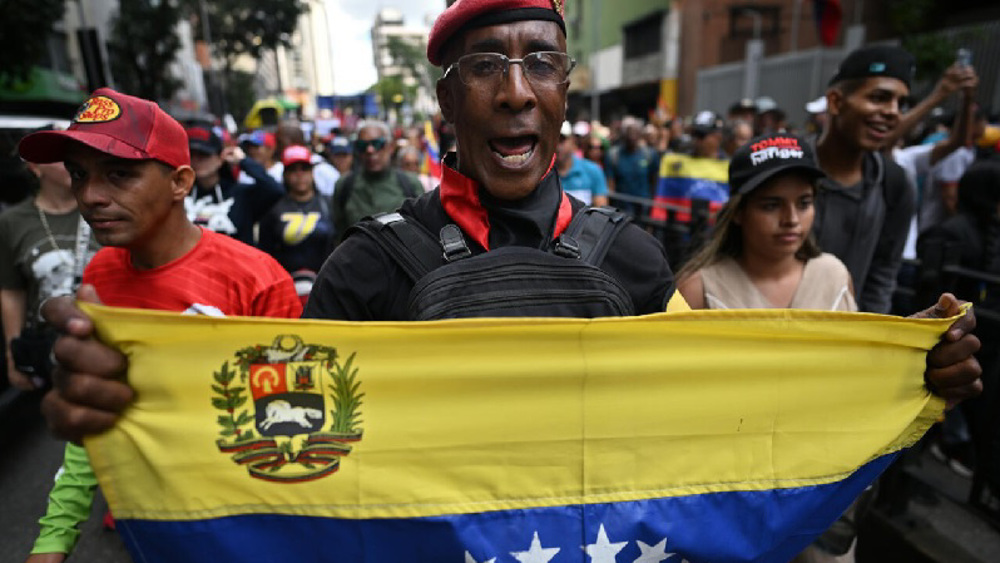
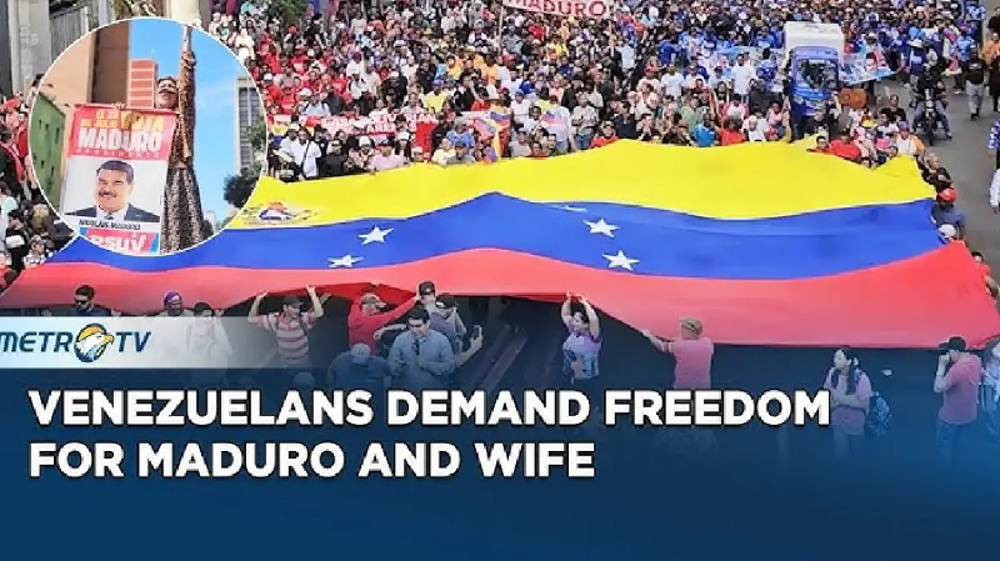
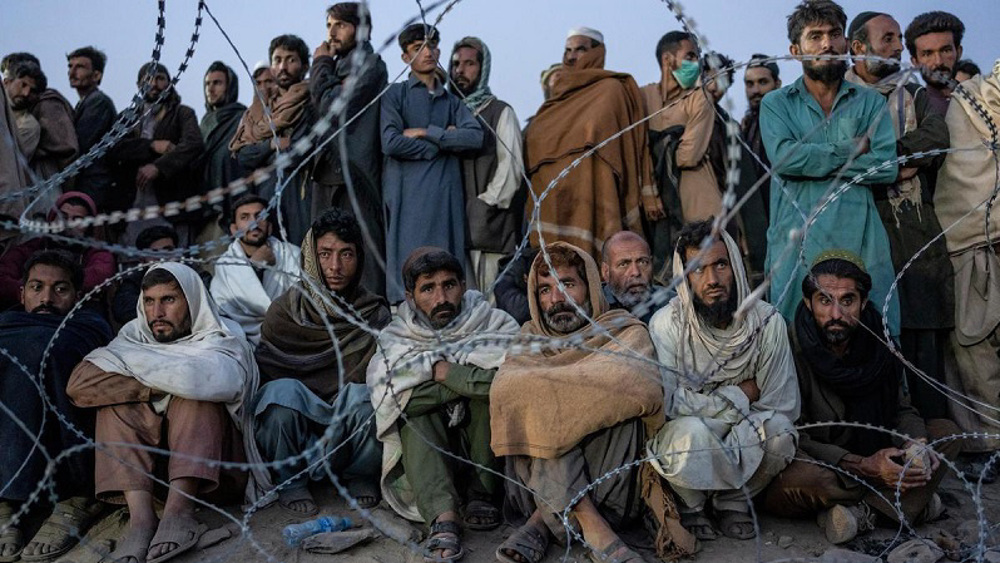




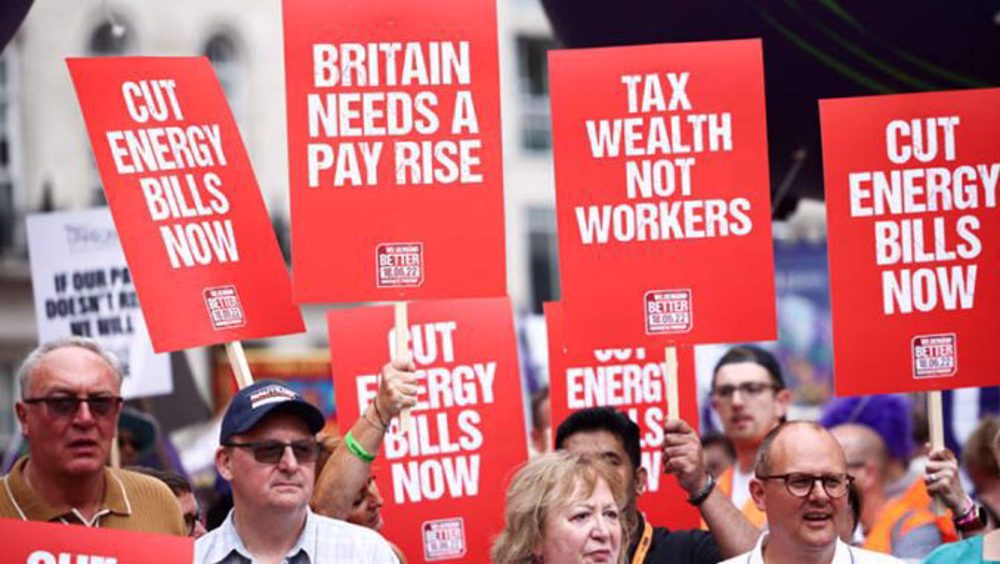
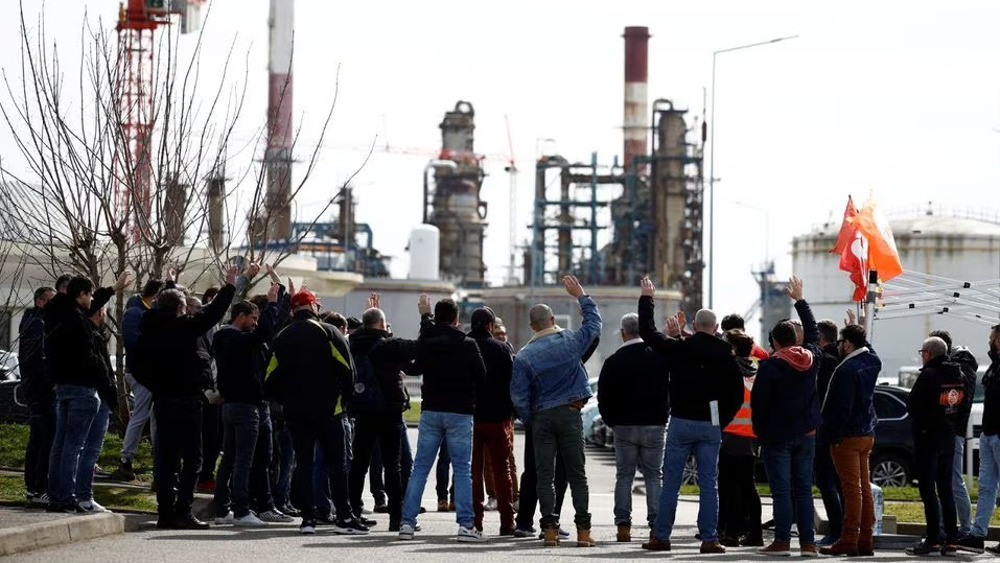
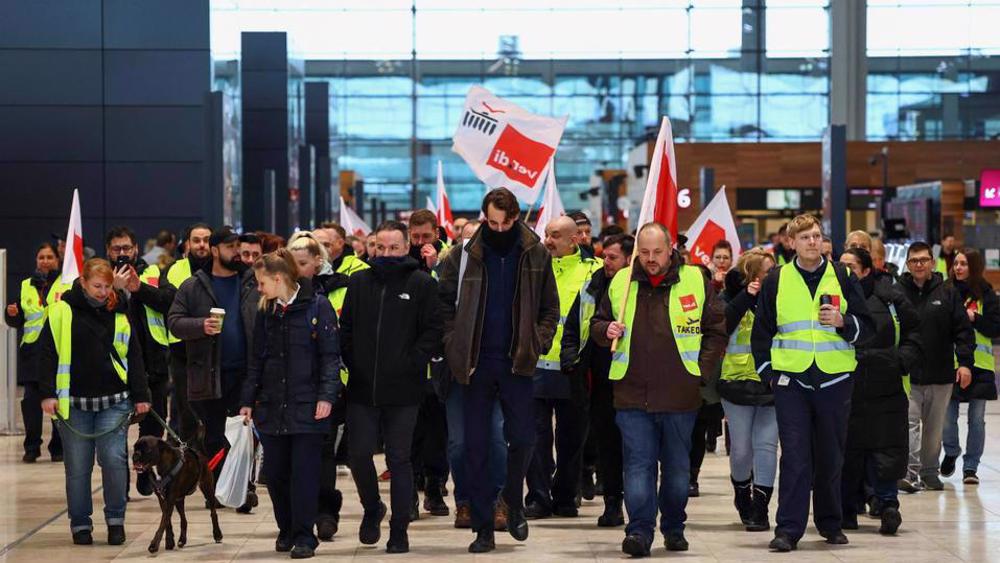
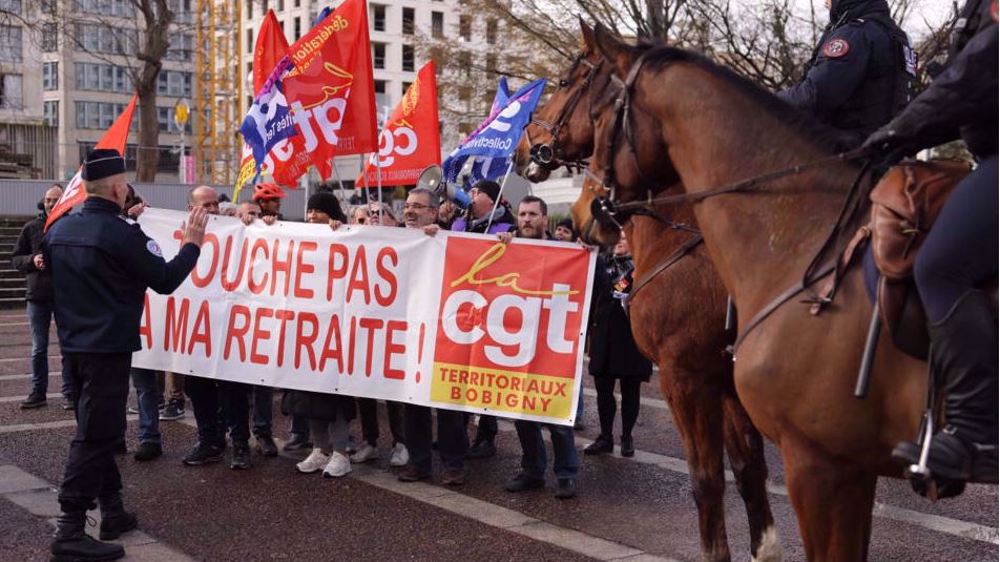
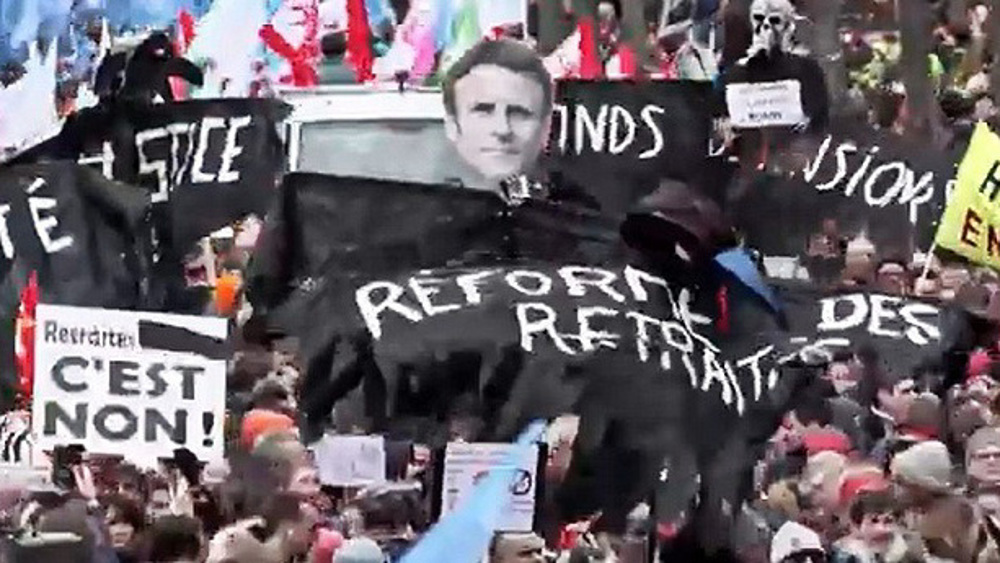
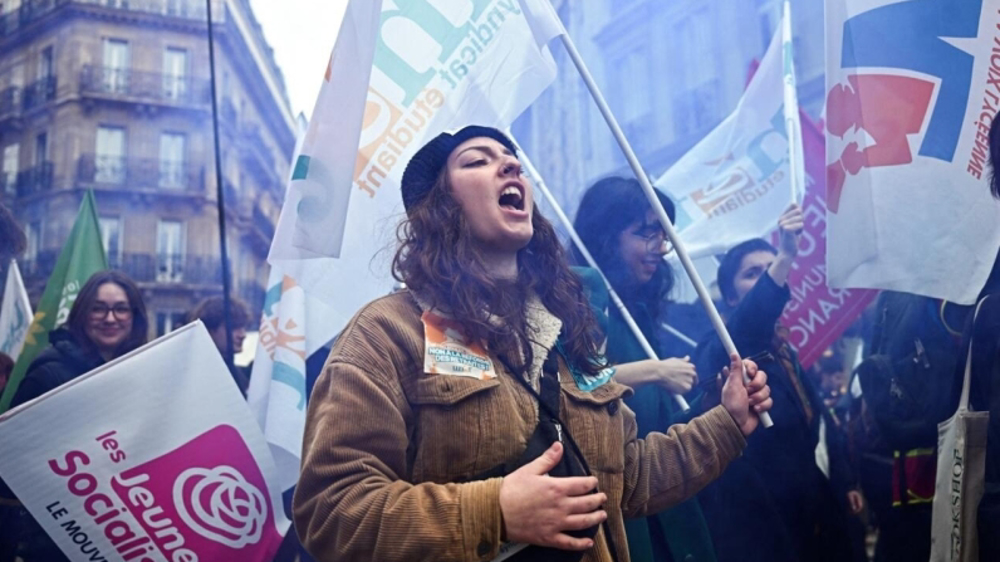
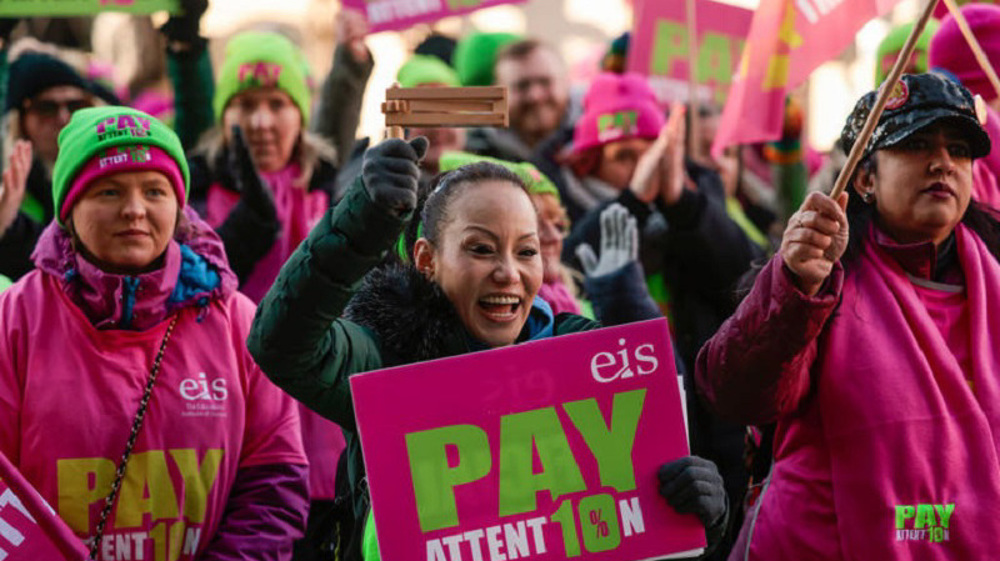
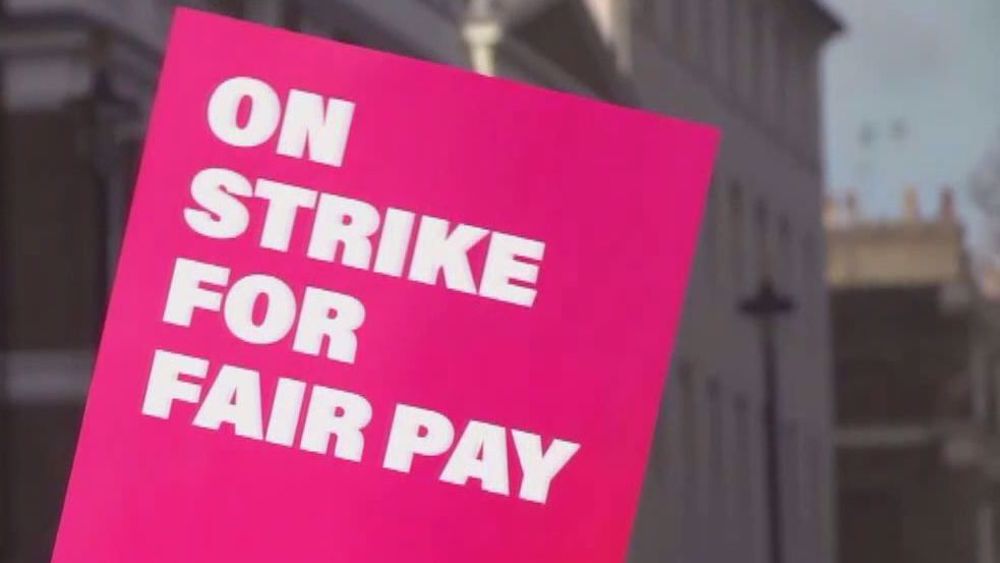

 This makes it easy to access the Press TV website
This makes it easy to access the Press TV website